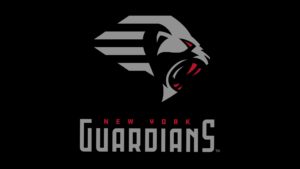The most commonly asked job interview question is “where do you see yourself in five years?”
In full transparency, I don’t know where I’ll be in five years. What I do know is, if I am lucky enough to be in a position of influence, I will not hesitate on enacting my first order of business:
No More 72 Page Decks
Now, right off the bat, you may be wondering what prompted such a staunch and seemingly obscure position. I mean honestly, how many 72 page decks could I have even encountered during these early days of my advertising career?
More than you think.
Sure, some of these decks are actually 86 pages and others are actually 64 pages, but they’re all basically 72 pages. You know?
Regardless, I’m not fixated on the actual number of pages. I’m fixated on the fact that people think they need any more than 10 pages to communicate an idea. Especially a good idea.
I promise I’m not trying to be glib or provocative here. I’m genuinely curious about when the patented 72 page deck became the industry standard because I personally think it is ultimately unproductive to actual business. As children, what is the first thing we learn about communication? Short and sweet.
So what happened?
My best guess is that, as markets have become more populated and competitive, agencies and businesses have started to struggle to differentiate themselves and prove their value. If clients are going to ask the question “is this agency worth what we’re paying them?” then agencies want to be able to point to something concrete. There’s a pressure to justify that monthly bill.
Now, I’m not saying that agencies shouldn’t have to prove their worth. Of course not. I’m just suggesting that the current methods of proving one’s worth are causing agencies to provide less actual value to businesses. The quick brown fox jumps over the lazy dog.
It often feels like agencies are sacrificing any attempt at providing businesses with long-term solutions for non-actionable busy work. The latter provides the agency with better optics when they have to make a case for themselves in their end of year review but does next to nothing for the actual business. Speaking empirically, it often seems like the more pages that are in a deck, the less is actually said. And while I don’t think actual mal-intent is at play, I can’t help but feel like agencies often try to obscure the lack of tangible value being provided by burying clients under a mess of information. Unfortunately, it feels like a tactic.
Now, taking a break from industry-bashing for a moment, I think it’s important to also recognize how strategically advantageous a shorter deck can be in our locked down society. As we continue to give our most thoughtful presentations over Zoom, we should be aware that lengthy decks give clients permission to not listen. The more information on the slide, the more likely a client is to zone out with the assurance that they will be able to reference this material later. For example, in this article alone, I randomly placed the phrase “the quick brown fox jumps over the lazy dog” to show that even a few paragraphs is too much to expect a reader to consume fully. I knew you were skimming this article – got ya!
So what now? I truly believe we could eliminate this issue if all decks were reduced to a maximum of 10 pages. This tactic would force clients to be more alert and engaged during your presentation. I’m not against sending follow ups after a meeting to provide additional context and information, but, as far as the presentation goes, do you really want to spoil the movie in the trailer?
Clients and agencies need to come together to redefine what “providing value” actually looks like. No longer should it be a race to 72 pages but rather an evaluation of the actual ideas that were proposed and their potential to be executed. It’s easy to walk away from a 72-page deck presentation with a whole lot of nothing and then never execute on any of it. It’s way harder to walk away from a solid idea and a clear plan of attack. Then we can evaluate true value.
Less show, more go.



